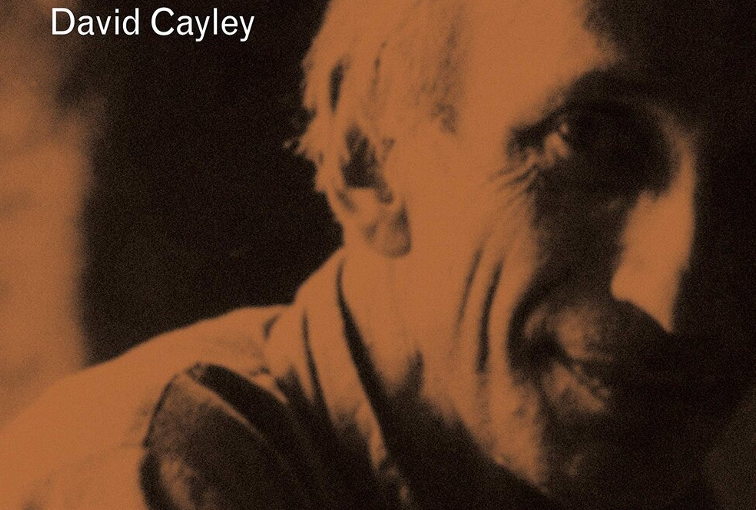Ivan Illich is one of those rare, seminal thinkers to whom I keep returning, again and again, because he fearlessly grapples with core themes that otherwise go ignored. He addressed, for example, the totalizing power of modern institutions, the corrupting influences of capitalism on spiritual life, and the power of vernacular practice to build more wholesome, insurgent cultures.
In my latest podcast (Episode #21), I had the pleasure of interviewing David Cayley, a close friend and colleague of Illich’s who recently published a magisterial synthesis and interpretation of his thought, Ivan Illich: An Intellectual Journey. Cayley is a former broadcaster for the Canadian Broadcasting Corporation and independent scholar and author who has written numerous books on topics literary, political, and ecological.
Ivan Illich. Photo by ‘Adrift Animal,’ CC BY-SA 4.0
Illich was an iconoclastic social critic, radical Christian, and cultural historian who soared to international fame in the 1970s with searing critiques of Western modernity, Christianity, and the professionalization of care in healthcare, education, and social services. An Austrian-born Catholic priest who often clashed with the Vatican, Illich eventually left the priesthood to become an itinerant speaker, public intellectual, and best-selling author. His thinking was sprawling and eclectic, but much of it focused on how we might pursue deeper, more meaningful spiritual lives in a modern world that seems designed to deny our elemental humanity.
While some of Illich’s perspectives now seem rooted in their time, mostly the 1960s and 1970s, his thinking remains highly relevant to contemporary life in developing a rich, detailed perspective that dissents from modern economics and politics. His work is perhaps even more relevant now that neoliberal capitalism, over the past forty years, has intensified its disempowerment of ordinary people.
In a series of books, Illich argued that formal education, healthcare, transportation, law, and other systems have come to dispossess us, creating more harm than benefit. In his book Medical Nemesis, Illich showed how the medical profession overmedicates people and pathologizes normal life. Deschooling Society showed how formal education is more focused on credentialing people for the capitalist order than in stimulating genuine curiosity and learning. Tools for Conviviality called for a culture that empowers humans with creative, open-ended tools for sociability.
A common thread in Illich’s thinking was Who gets to define our sense of reality? He cast his lot with the “vernacular domains” in which we self-organize ourselves – the informal spaces where we perform the “shadow work” of commoning and caring – activities the mainstream economy ignores. Illich also ventured into all sorts of unusual historical excavations, such as a history of the senses in reporting medical problems, silence as a commons, and the role of hair (as a vector for lice) in the history of urban life. (See some of my previous blog posts on Illich here and here, and a 2013 talk that I gave on Illich’s contemporary influence.)
By approaching the world from the bottom up, via actual social practices and spiritual needs, Illich’s books and talks were prophetic in laying the intellectual foundations for the world of commoning that has emerged over the past twenty years. By exploring social and spiritual life that exists outside of the market/state imperium — a space beyond the secular, materialistic, economic realm of modern consciousness — Illich affirmed and articulated a rich space for imagining modern-day commons. Cayley has called Illich “a Marx for the age after development.”
Illich was a thinker, like E.F. Schumacher, who insisted
“the scale issue is not some frill,” said Cayley. “It is absolutely central, an absolutely crucial issue. When things get too big, they become unmanageable, absolutely and without qualification. There are tools that by definition, by their very nature, cannot be controlled. They will control us, inevitably.”
Illich therefore proposed the concept of “convivial tools” that honor human agency and creativity. Convivial tools are not closed and proprietary, in the style of Microsoft Windows, but open-ended, flexible instruments that serve the needs and interests of ordinary individuals and communities.
Illich was among the early critics of standard economics and modern capitalist notions of “development.” He challenged the premise of “scarcity” built into this framework of thought and highlighted the dangers of unlimited growth. Standard economics, he noted, has no sense of “enoughness”; this is not only the source of our ecological problems, but our emotional and spiritual turmoil. This can be traced to capitalist markets, as supported by the state, that steer us toward dependencies on commodities and market transactions, marginalizing our basic human needs and disrupting our relationships with each other.
In this sense, he argued, modern life represents a 500-year war against subsistence – the idea that we should produce for exchange value and money, rather than for use value and needs.
“The economy is not going to save most of the people who are alive in the world today,” wrote Illich. “But it can make their pursuit of livelihood obscure and undignified.” The root error of “development,” said Illich is “an ecologically unfeasible conception of human control of nature.”
While David Cayley’s book is long — more than 450 pages — it vividly synthesizes Illich’s life and work in a text that combines personal memoir, biography, intellectual history, and cultural commentary. The book helps contemporary readers appreciate Illich as a powerful original thinker, a creative and dogged scholar, and a magnetic personality. Though classically educated, Illich wrote and spoke for a popular audience. He was a teacher as well as a theologian of sorts who tried to teach people through his actions and provocations. He was so compelling because he brought his fullest, most vulnerable self to the challenge. Cayley once compared him to an alert bird cocking his head, trying to take everything in.
You can listen to my interview with David Cayley here.






